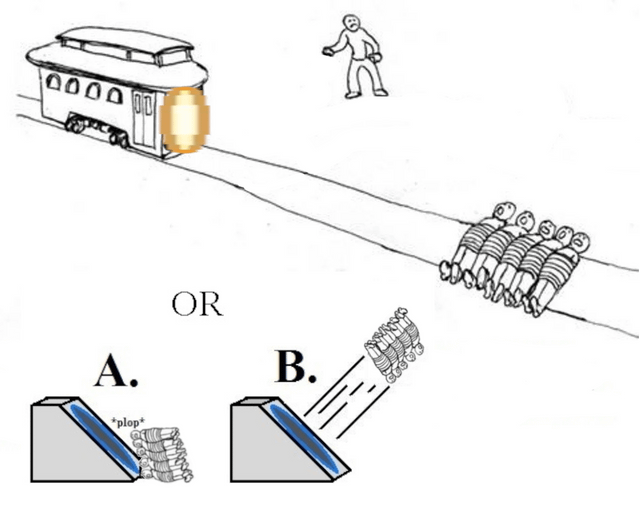this post was submitted on 18 Aug 2023
210 points (97.3% liked)
196
16815 readers
1317 users here now
Be sure to follow the rule before you head out.
Rule: You must post before you leave.
founded 2 years ago
MODERATORS
you are viewing a single comment's thread
view the rest of the comments
view the rest of the comments

Imagine the following:
Point A is traveling towards point B at a speed of 50km/h
Point B is traveling towards point A at a speed of 50km/h
In these instances, the distance between point A and point B decreases at the same rate. This means there is the same amount of energy, the same amount of force, being provided towards each other. Which one is moving is irrelevant, just so long as the total energy putting them closer together is the same.
In both instances, they would collide with the force and energy necessary to move 50km/h at their respective masses. For this exercise, let’s say they’re both 100kg. This means the energy required to move a 100kg object 50km/h is approximately 9.6 kilojoules. This means 9.6 kilojoules of energy must be used to accelerate them, and 9.6kilojoules will be dissipated into each other in the event of a collision.
In this case, however, rather than colliding and dissipating the energy into the crash, there is another option.
Tf you have a portal, it’s essentially a door to a room. If you run towards the door, or the room moves closer to you with the door open, you still enter the room at the same speed, with the same forces acting upon your body.
So the only logical conclusions that can come of this are the following:
Either the portals obey the laws of relative motion, (meaning all of the factors I described are the only factors to worry about) or they don’t. If they do not, that means absolute motion must be taken into account, including the absolute point in space the earth was, the velocity at which the earth spins, etc. Since this is clearly not demonstrated in the Portal games, the only logical conclusion is this:
As the portal accelerates towards you, (or you accelerate towards the portal) your body must move with the forces necessary to accelerate at the speed at which the collision would occur. In other words, if you weigh 100kg, and the trolley is traveling towards you at 50km/h, your new velocity will be perpendicular to the exit angle of the second portal with 9.6 kilojoules of energy affecting you.
I hope this explains why option B is the right answer